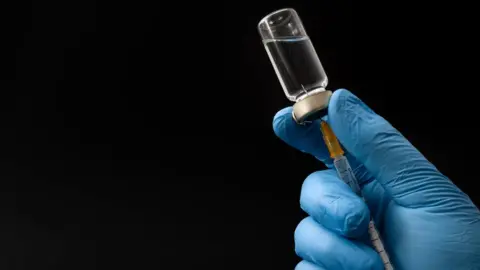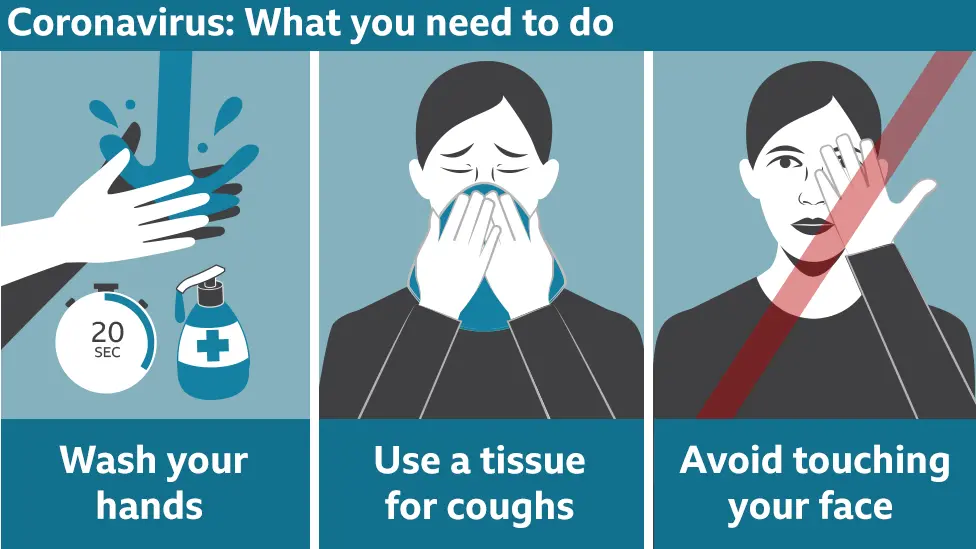Coronavirus: US volunteers test first vaccine
 Getty Images
Getty ImagesThe first human trial of a vaccine to protect against pandemic coronavirus has started in the US.
Four patients received the jab at the Kaiser Permanente research facility in Seattle, Washington, reports the Associated Press news agency.
The vaccine cannot cause Covid-19 but contains a harmless genetic code copied from the virus that causes the disease.
Experts say it will still take many months to know if this vaccine, or others also in research, will work.
The first person to get the jab on Monday was a 43-year-old mother-of-two from Seattle.
"This is an amazing opportunity for me to do something," Jennifer Haller told AP.
Scientists around the world are fast-tracking research.
The biotechnology company behind the work, Moderna Therapeutics, says the vaccine has been made using a tried and tested process.

- EASY STEPS: How to keep safe
- A SIMPLE GUIDE: What are the symptoms?
- GETTING READY: What's the UK's plan?
- TRAVEL PLANS: What are your rights?
- IN-DEPTH: Coronavirus pandemic

Dr John Tregoning, an expert in infectious diseases at Imperial College London, UK, said: "This vaccine uses pre-existing technology.
"It's been made to a very high standard, using things that we know are safe to use in people and those taking part in the trial will be very closely monitored.
"Yes, this is very fast - but it is a race against the virus, not against each other as scientists, and it's being done for the benefit of humanity."
Typical vaccines for viruses, such as measles, are made from a weakened or killed virus.
But the mRNA-1273 vaccine is not made from the virus that causes Covid-19.
Instead, it includes a short segment of genetic code copied from the virus that scientists have been able to make in a laboratory.
This will hopefully prime the body's own immune system to fight off the real infection.
The volunteers were being given different doses of the experimental vaccine.
They will each be given two jabs in total, 28 days apart, into the upper arm muscle.
But even if these initial safety tests go well, it could still take up to 18 months for any potential vaccine to become available for the public.

